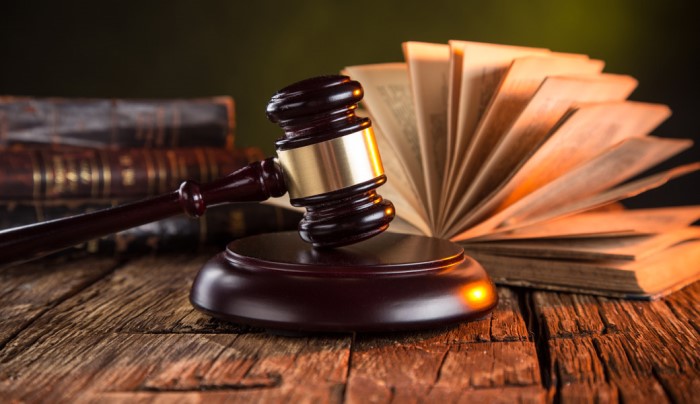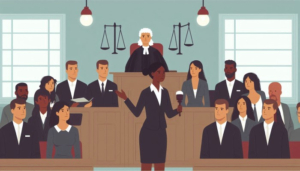
Driving under the influence (DUI) is a serious offense with significant consequences. However, if you’ve been convicted of a DUI and believe that procedural errors may have impacted your case, appealing the conviction is a crucial step. This guide delves into the appeal process, identifies common procedural errors, and provides practical advice for navigating your appeal. Understanding the nuances of procedural errors and the appeal process can make a significant difference in the outcome of your case.
Understanding DUI Convictions
Definition of DUI
DUI stands for Driving Under the Influence. It typically involves operating a vehicle while impaired by alcohol or drugs. The legal definition of DUI varies by jurisdiction, but it generally includes having a blood alcohol concentration (BAC) above a certain limit or exhibiting impaired driving abilities due to substance use.
Common Misconceptions about DUI Convictions
Many people believe that DUI convictions are straightforward and unappealable. However, procedural errors can sometimes create grounds for an appeal. Misconceptions include the belief that once convicted, all options are exhausted or that procedural issues are insignificant.
Consequences of a DUI Conviction
Legal Penalties
The legal repercussions of a DUI conviction can be severe, including fines, license suspension, and jail time. Penalties vary by jurisdiction and the specifics of the case, such as the level of impairment and whether there were aggravating factors like prior offenses.
Social and Personal Impacts
Beyond legal penalties, a DUI conviction can impact your personal and professional life. It may affect your employment, relationships, and reputation. Understanding these consequences can underscore the importance of addressing any potential procedural errors.
Grounds for Appealing a DUI Conviction
Overview of Appeal Processes
Appealing a DUI conviction involves challenging the legal process and the trial’s outcome. The appeal process varies by jurisdiction but generally includes filing a notice of appeal, preparing an appeal brief, and presenting your case to a higher court.
Procedural Errors in DUI Cases
Definition and Examples
Procedural errors refer to mistakes made during the legal process that can affect the fairness of the trial. Examples include mishandling evidence, improper arrest procedures, and courtroom errors.
Impact of Procedural Errors on the Case
Procedural errors can significantly impact the outcome of a DUI case. They may lead to wrongful convictions or unjust penalties. Identifying and addressing these errors is essential for a successful appeal.
Types of Procedural Errors
Evidence Handling Errors
- Chain of Custody Issues: Maintaining a clear chain of custody is crucial for evidence integrity. Any breaks or tampering can undermine the evidence’s credibility.
- Tampering with Evidence: Evidence must be preserved and handled properly. Tampering or mishandling can lead to questions about its validity.
Errors in Law Enforcement Procedures
- Improper Administration of Sobriety Tests: Sobriety tests must be administered according to established protocols. Deviations can affect the test results’ reliability.
- Illegal Stop or Arrest: Law enforcement must have probable cause for stopping or arresting a driver. If the stop or arrest was illegal, it could invalidate the evidence obtained.
Courtroom Errors
- Issues with Jury Selection: Improper jury selection can impact the fairness of the trial. Ensuring a fair and impartial jury is a critical component of the legal process.
- Misinterpretation of Law: Misinterpretation or misapplication of the law by the judge can affect the trial’s outcome.
How to Identify Procedural Errors
Reviewing Court Documents
Carefully reviewing court documents, including transcripts and evidence, can help identify procedural errors. Look for discrepancies, procedural deviations, or inconsistencies.
Interviewing Witnesses
Interviewing witnesses, including law enforcement officers and experts, can provide insights into potential procedural errors. Witness statements may reveal errors in how evidence was handled or how procedures were followed.
Consulting Legal Experts
Consulting with legal experts or DUI attorneys can provide valuable insights into potential procedural errors. Experts can help identify issues that may not be immediately apparent.
Evaluating Police Reports
Police reports should be thoroughly evaluated for inaccuracies or procedural mistakes. Discrepancies between the report and other evidence can indicate potential errors.
Steps to Appeal a DUI Conviction
Filing a Notice of Appeal
The first step in appealing a DUI conviction is filing a notice of appeal. This document informs the court and the opposing party of your intention to appeal the conviction.
Preparing the Appeal Brief
The appeal brief outlines the grounds for your appeal, including any procedural errors. It should be well-researched and clearly present your arguments.
Gathering Supporting Evidence
Gathering supporting evidence, such as documents, witness statements, and expert opinions, is crucial for strengthening your appeal. Ensure all evidence is relevant and properly documented.
Attending the Appeal Hearing
Attend the appeal hearing to present your case to the appellate court. Be prepared to answer questions and provide additional evidence if needed.
Post-Hearing Steps
After the appeal hearing, follow any additional instructions from the court. This may include submitting further documentation or attending additional hearings.
Legal Representation and Resources
Importance of Hiring an Experienced DUI Attorney
Hiring an experienced DUI attorney is essential for navigating the appeal process. A skilled attorney can provide guidance, identify procedural errors, and advocate on your behalf.
How to Choose the Right Lawyer
When choosing a DUI lawyer, consider their experience with DUI appeals, their track record, and their reputation. Consult with multiple attorneys to find the best fit for your case.
Legal Aid and Resources Available
Legal aid organizations and resources can provide assistance if you cannot afford private legal representation. Explore options for legal aid and pro bono services in your area.
Case Studies and Examples
Famous DUI Appeal Cases
Reviewing famous DUI appeal cases can provide insights into successful appeal strategies and common procedural errors. Analyzing these cases can offer valuable lessons for your own appeal.
Lessons Learned from Previous Cases
Previous cases can reveal patterns in procedural errors and effective appeal strategies. Understanding these lessons can help you build a stronger case.
Real-Life Implications of Procedural Errors
Examining real-life implications of procedural errors highlights the importance of addressing these issues. Procedural errors can have significant consequences for individuals and their lives.
Potential Outcomes of a DUI Appeal
Possible Results of an Appeal
The possible outcomes of a DUI appeal include a reversal of the conviction, a reduction in sentence, or a new trial. Understanding these outcomes can help you prepare for the appeal process.
Reversal of Conviction
A successful appeal may result in the reversal of the conviction, meaning the original verdict is overturned. This can lead to the dismissal of charges or a new trial.
Reduced Sentences
In some cases, an appeal may result in a reduced sentence. This may include a reduction in fines, jail time, or other penalties.
New Trial
A new trial may be ordered if procedural errors significantly impacted the original trial. A new trial allows for a fresh examination of the evidence and legal issues.
Preventive Measures and Best Practices
Tips for Avoiding DUI Convictions
Avoiding DUI convictions involves adhering to legal and behavioral practices. Tips include using designated drivers, avoiding driving after consuming alcohol or drugs, and understanding local DUI laws.
Legal and Behavioral Strategies
Implementing legal and behavioral strategies can help prevent DUI convictions. This includes knowing your rights, understanding legal procedures, and making responsible choices.
Importance of Compliance with DUI Laws
Compliance with DUI laws is crucial for avoiding legal issues. Staying informed about DUI regulations and practicing safe driving can help prevent convictions.
Expert Insights
Quotes from DUI Legal Experts
Quotes from DUI legal experts can provide valuable perspectives on handling DUI convictions and appeals. Expert opinions can offer guidance and reassurance during the appeal process.
Professional Advice on Handling DUI Convictions
Professional advice on handling DUI convictions can help you navigate the appeal process effectively. Experts can offer strategies for addressing procedural errors and building a strong case.
Future Trends in DUI Appeals
Understanding future trends in DUI appeals can help you stay informed about changes in legal practices and procedural standards. Staying updated can improve your chances of a successful appeal.
Conclusion
Appealing a DUI conviction based on procedural errors involves understanding the appeal process, identifying potential errors, and seeking expert legal representation. Key points include the importance of procedural accuracy, the steps to file an appeal, and the potential outcomes of the appeal process.
Appealing a DUI conviction can be complex, but addressing procedural errors is a crucial step in seeking justice. Understanding your rights and working with experienced legal professionals can significantly impact the outcome of your appeal.
If you’re considering appealing a DUI conviction, consult with a qualified DUI attorney to explore your options. Seeking professional advice can help you navigate the appeal process and achieve the best possible outcome.






